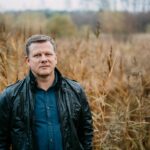It is a bit hard to believe that this coming fall marks my 10th season with the SSO. When I first took on this role, I took to our blog to share my vision for the future. But somewhere along the way I ran out of time to blog…a good problem to have because it was the result of incredible organizational growth.
As I’ve watched our orchestra and our organization grow this season, I wanted to take time to take stock of what we’ve accomplished.
Since its launch, we’ve had more than thirty-five million minutes of viewing on the ConcertStream.tv platform. Read that again. 35 million minutes of viewing. Hundreds of thousands of people from 53 countries. From online subscribers to folks who watch our free content, what we’ve been able to do is share our music with more people. Unprecedented accessibility to the SSO has changed us forever.
This season, we’ve been the lucky ones to experience some of the most sensational performances Saskatoon has ever enjoyed. Whether you danced the night away at the Music of ABBA, laughed with the Muppets, were filled with joy at Handel’s Messiah, or had your breath taken away by Jan Lisiecki, I know you’ll agree that this season has felt like a golden age.
The crowds have been incredible. Multiple sell-out concerts and full houses have left us feeling the love! Nothing beats the thrill of hearing the roar of the crowd. It’s been a season celebrating the exceptional talent that Saskatoon has to offer. With artistic partners like Ryan Davis and Danika Lorèn and performances with the Saskatoon Youth Orchestra, the SSO Chorus, the Greystone Singers, and Aurora Voce…those have been special moments that show this organization and community at its best.
Then there’s been the profound performances from your SSO musicians. The orchestra, time and time again this season, have stepped up and shown how much a symphony can mean to its community. Whether lifting up homegrown talent, helping toddlers experience the joy of music, or performing alongside a legitimate musical superstar, the musicians of your orchestra have made us all proud.
It goes without saying that an orchestra needs its audience, I actually believe that the reverse is more true. The audience needs its orchestra. What an exciting thing to be able to go to a concert (or watch it on your phone!) and experience the thrill of an orchestra in full flight. It makes our community a better place to call home.
The multiplier effect of an orchestra is astonishing. Our musicians teach, mentor, and inspire students. Those students go on to be people who understand hard work, goal setting, perseverance, and the joy of complex music. The musicians on stage have influenced the lives of countless people across our province.
Our concerts change minds, burst with emotions and imagination, and lift us up out of day-to-day life.
From a child hearing the violin for the first time, to students in schools learning about the importance of living composers, to long-time subscribers hearing new sounds and falling in love with music all over again – the outcome is remarkable.
Orchestras are living, breathing, vital artistic beings that have an exponential impact in their communities. I cannot imagine Saskatoon, and indeed Saskatchewan, without their orchestras.
This season isn’t without its challenges. The prairies are experiencing a crippling arts funding crisis. The value of music is shrinking in our education system, as it’s easy to ignore the continually growing body of evidence that musical literacy is crucial to a complete education and a student’s success. All arts organizations are feeling the deep effects and challenges of inflation. It’s hard work, and it’s worth it.
The SSO has come a long way – we’re not done. We’re focused on a robust future for music in Saskatoon, one that is filled with passion, innovation, and an ambitious plan for musical opportunities and accessibility.
In the weeks ahead we have a fundraising campaign to finish. Our Opus 100: Share in the Future campaign crossed its first matching goal in December, and then the generosity of the Frank and Ellen Remai Foundation shone through and extended our matching to a goal of $500,000. To date, we’ve raised over $350,000 – giving us six more weeks to raise another $150,000 to meet our goal.
I’ll come back to blogging to share my passion for the SSO, because it’s important for us to take stock of how much the SSO means and remind you how fiercely proud we should be.
See you at the symphony – soon,
Mark Turner
CEO and Creative Producer
 Touted by The WholeNote as a “lovely violist,” Radia, the moniker for Saskatchewan-raised artist Ryan Davis, is swiftly emerging as a singular creative force. Combining his rigorous classical training with the inspiration of folk, electronic, and hip-hop music, he finds himself seamlessly blending in between creative spaces. Using the viola as his voice, his unique sound has garnered attention and has been featured in diverse spaces, including in Toronto’s Koerner Hall, The Violin Channel, in Los Angeles’s Skid Row, and on ABC Channel 7 News LA. Of Glow & Abandon, his debut EP, was released on all major platforms on December 18th, 2021. He was named one of “30 Hot Canadian Classical Musicians Under 30” by CBC Music in 2021.
Touted by The WholeNote as a “lovely violist,” Radia, the moniker for Saskatchewan-raised artist Ryan Davis, is swiftly emerging as a singular creative force. Combining his rigorous classical training with the inspiration of folk, electronic, and hip-hop music, he finds himself seamlessly blending in between creative spaces. Using the viola as his voice, his unique sound has garnered attention and has been featured in diverse spaces, including in Toronto’s Koerner Hall, The Violin Channel, in Los Angeles’s Skid Row, and on ABC Channel 7 News LA. Of Glow & Abandon, his debut EP, was released on all major platforms on December 18th, 2021. He was named one of “30 Hot Canadian Classical Musicians Under 30” by CBC Music in 2021.



 Nicolas Ellis is the Artistic Director, Conductor and Founder of the Orchestre de l’Agora and currently serves as Artistic Partner to the Orchestre Métropolitain and Yannick Nézet-Séguin. He was recently named Principal Guest Conductor for Les Violons du Roy, starting in the 2023-2024 season.
Nicolas Ellis is the Artistic Director, Conductor and Founder of the Orchestre de l’Agora and currently serves as Artistic Partner to the Orchestre Métropolitain and Yannick Nézet-Séguin. He was recently named Principal Guest Conductor for Les Violons du Roy, starting in the 2023-2024 season.